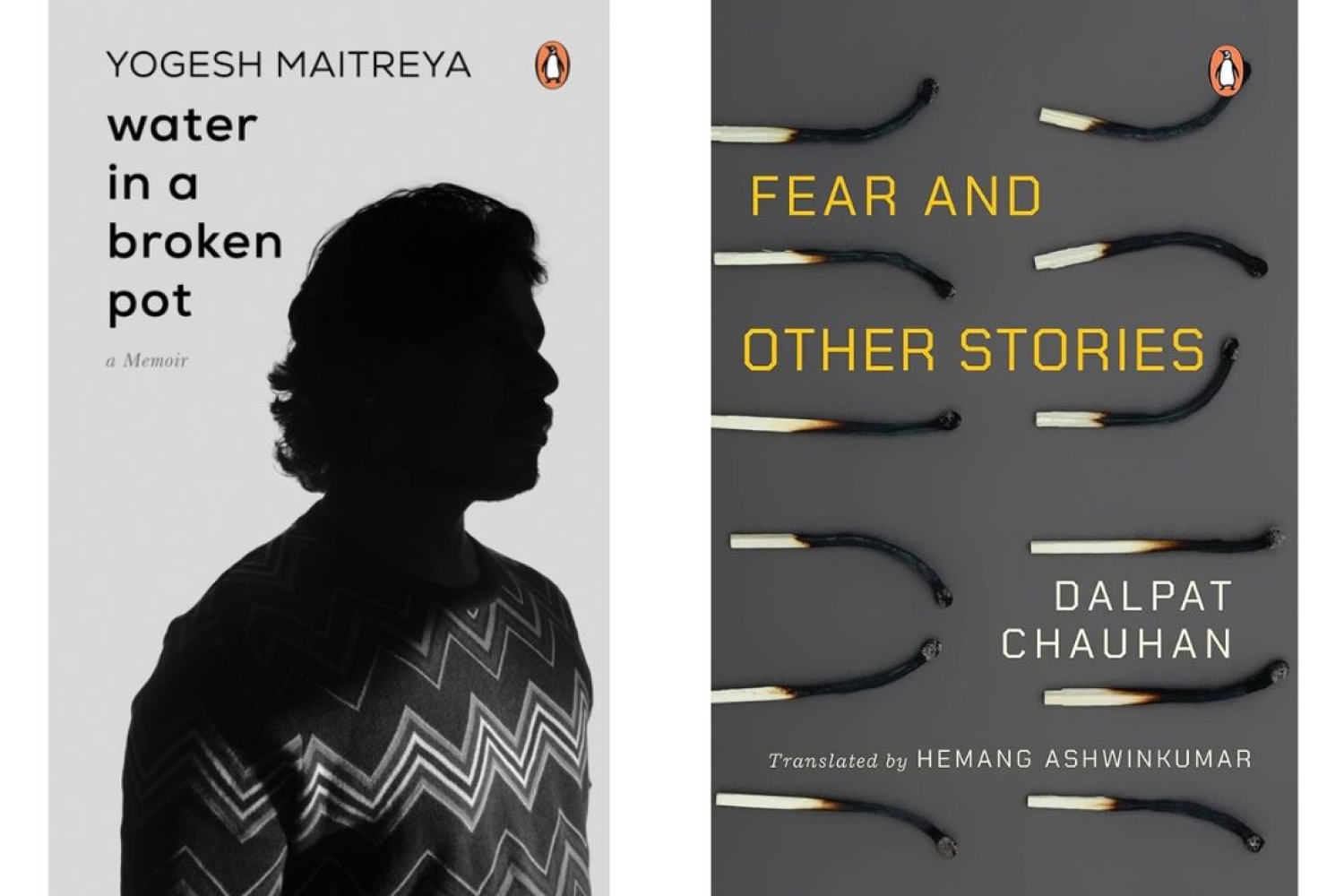

In the year 2023, we witnessed another profound addition to the nuanced conversation surrounding Dalit livelihood. The year's literary landscape offered an array of powerful voices, each contributing to a more comprehensive understanding of the challenges, aspirations, and resilience within the Dalit community. We explore four writings that have stood out by presenting a new outlook to challenge societal norms, understand intersectionality and amplify variety of Dalit voices.
Fear and Other Stories
Fear and Other Stories serves as a poignant reminder of the inherent dangers embedded in Dalit life—a life persistently exposed to unimaginable violence and terror, even in its seemingly mundane moments. In this compelling collection of short stories, Dalpat Chauhan, a veteran Gujarati writer, vividly recounts the lived experiences of exasperation and anger within the Dalit community. Hemang Ashwinkumar's deft translation skillfully brings Chauhan's heart-wrenching stories to an English-speaking audience, revealing a rural Gujarat that defies the picturesque idylls often associated with it. Beyond mere translation, Ashwinkumar's introduction to the book not only provides essential context to Chauhan's work but also serves as a poignant and thought-provoking commentary on the broader landscape of Dalit literature.
Water in a Broken Pot
Water in a Broken Pot stands as an incredibly moving and hauntingly honest memoir penned by Yogesh Maitreya, a prominent independent Indian Dalit publisher, writer, and poet. The memoir traces Maitreya's upbringing in a working-class family grappling with meager wages, portraying the poignant struggles of his father against alcoholism juxtaposed with an unwavering passion for cinema. It delves into the shattering of intergenerational dreams, the relentless toil of working day and night shifts in factories, and the pervasive struggle of navigating a society marked by being lost, overlooked, and devoid of mentorship within India's casteist, exclusionary, and hostile schooling, college, and university systems. Throughout the narrative, Maitreya unearths feelings of lovelessness, loss, and heartaches, laying bare the multifaceted layers of his personal odyssey.
Caste Pride
Over the course of two centuries of legal reform interwoven with social movements, Manoj Mitta unravels the intricate web of characters, speeches, confusions, and decisions that have played pivotal roles in shaping the ongoing battle against caste discrimination within the society. He explores restrictions on where individuals could live, how they could dress, whether they could access public spaces like shops, streams, or streets, and the pervasive limitations on social interactions, including entering temples. The author investigates the intricate regulations governing marriages, the application of scriptures based on caste, and the stark disparities in the administration of justice, determining whether actions, whether innocent or criminal, would result in punishment or impunity.
Fire on the Ganges: Life Among the Dead in Banaras
Fire on the Ganges marks the initial endeavor to document the everyday realities of the Doms, a Dalit sub-caste in Banaras assigned by tradition to the duty of performing the Hindu cremation rites. Entrusted with the ownership of the sacred fire crucial for the Hindu soul's liberation from the cycle of death and rebirth, this community paradoxically finds itself relegated to the lowest rung of the caste hierarchy, enduring the enduring stigma of being treated as 'untouchables.' This exploration ventures into Banaras's historical tapestry while intimately focusing on a select group of spirited characters from the Dom community. Their individual narratives, marked by tales of struggle and survival, loss and ambition, betrayal, and love, weave together to narrate a story that is alternately heartbreaking and exhilarating.
Words Paridhi Badgotri
Date 04.12.2023